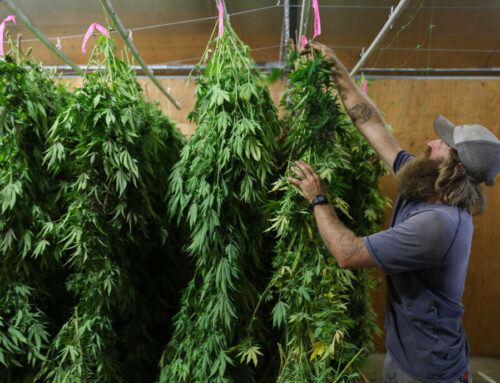Slovenia Votes Overwhelmingly for Cannabis Reforms in Recent Elections
WORLD- In a significant shift, Slovenian voters have endorsed key cannabis reforms, including the cultivation of medical cannabis and limited personal use, reflecting evolving societal attitudes.
One of the key questions put to voters was whether Slovenia should permit the cultivation and processing of cannabis specifically for medical purposes. Although medical cannabis is already legal, its cultivation was previously prohibited. The approval of this measure signifies a critical step towards aligning legislation with public opinion and facilitating broader access to medical cannabis.
This move could provide individuals with better access to medical cannabis treatments and support advancements in medical research and pharmaceutical applications. Overwhelming public support reveals a societal shift favoring more liberal approaches to cannabis use, potentially prompting further government action to revise existing laws. The second measure on the ballot addressed whether citizens should be allowed to cultivate and possess limited quantities of cannabis for personal use. This measure passed by a narrower margin, with 52% approval. This indicates a developing but growing acceptance of recreational cannabis use. Despite the close margin, the approval marks a significant shift in public attitudes towards recreational cannabis use. By allowing the cultivation and possession of small amounts of cannabis for personal use, the public is moving towards de-stigmatizing the plant’s consumption outside medical contexts.
The influence of neighboring countries, particularly Italy, which recently saw its highest court ruling in favor of cannabis reform measures, demonstrates regional momentum towards relaxed cannabis policies. Italy’s progressive reforms include:
– The allowance for home cultivation of up to four plants.
– The establishment of Cannabis Clubs.
– The removal of penalties against consumers.
Italy’s reforms set important precedents within Europe, providing a reference point for Slovenia. These developments carry implications for other nations considering similar legislative changes concerning cannabis. The formation of Cannabis Clubs in Italy indicates a structured approach that balances regulation with accommodating personal use. As international attitudes and regulations around cannabis continue to evolve, interest is high among those keen on understanding varying global markets and regulatory environments. Expanding knowledge about cannabis and its uses offers new insights into potential benefits and risks associated with different forms of the plant.
Investigating international regulations provides a comprehensive knowledge base where stakeholders can observe and learn from diverse legislative experiences. Comparing policy outcomes aids in better decision-making and highlights best practices or pitfalls to avoid. Slovenia’s recent election results present a meaningful opportunity to advance cannabis reforms. As public opinion shifts towards greater acceptance, there is potential for substantive legislative modifications that reflect evolving societal norms. Additionally, observing Italy’s progressive moves may inspire broader regulatory changes. Both nations’ trends towards more permissive and regulated approaches to cannabis signal potential transformations within the European region.



































